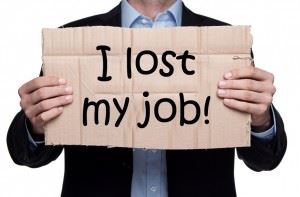Temporary job loss is becoming a permanent thing

The ravaging impact of the coronavirus pandemic on the United States economy has made a lot of people lose their major source of livelihood. At first, workers were told to go home and maintain social distancing as a way of avoiding the widespread of the virus. Today, what started like a temporary dismiss is fast becoming a permanent one. One of the numerous cases of this occurrence is the one of a twenty years old William Lovely who used to work at the Jason Deli in Virginia Beach. Lovely delivers all orders to surrounding companies.
In March, when the spread of the coronavirus takes a leap, Jason Deli closed down and the workers are forced to stay out of work. Lovely has since then been gigging with other delivery companies like Instacart and UberEats where he sometimes earns up to $100 a day but most often than not, he comes home with nothing. Lovely reckon that despite not having a substantial means of livelihood, his bills never stop coming.
He states that the best he can hope for now is a part-time job in his former company as they are beginning to slowly reopen.
Lovely's case is only one out of the numerous cases of workers who have been subjected to unemployment as a result of the "shock reallocation."
The risk in this kind of situation is that being laid off from work is fast becoming the order of the day and people are being forced to reallocate. The coronavirus has brought a lot of unexpected changes to the overall economy of the United States.
According to the research conducted by Bloomberg, unemployment in the USA has risen to 30% from the month of February to May. This is basically as a result of the "reallocation shock" caused by the coronavirus pandemic. The analysis based on the relationship between hiring firing opening and unemployment revealed that the labor market would recover swiftly but then level up with millions of unemployed persons.
Jobs in the hospitality company are presumed to be worst affected than other jobs like education, leisure, retail, and health. The pandemic also affects the bricks and mortar companies facing off against e-commerce platforms like Amazon.
Financial pricing companies are also not left out. Equity market returns across different sectors and companies of varying sizes suggest that investors are now betting on a shift in profit between companies similar to that which was witnessed in 2008 after the global financial crisis which results in loss in profits and subsequently loss of jobs.
Nicholas Bloom a professor of economics at Stafford university who is also part of the Bloomberg study revealed that there has been a massive "reallocation shock, " caused by the coronavirus pandemic.
The Peterson institute reveals that this shock reallocation might require that the government do more than just preserve businesses and protect workers. It might require that the government do more what they would do in a normal recession case. The institute recommends wage subsidies in order to create an incentive for production.


Be the first to comment!
You must login to comment